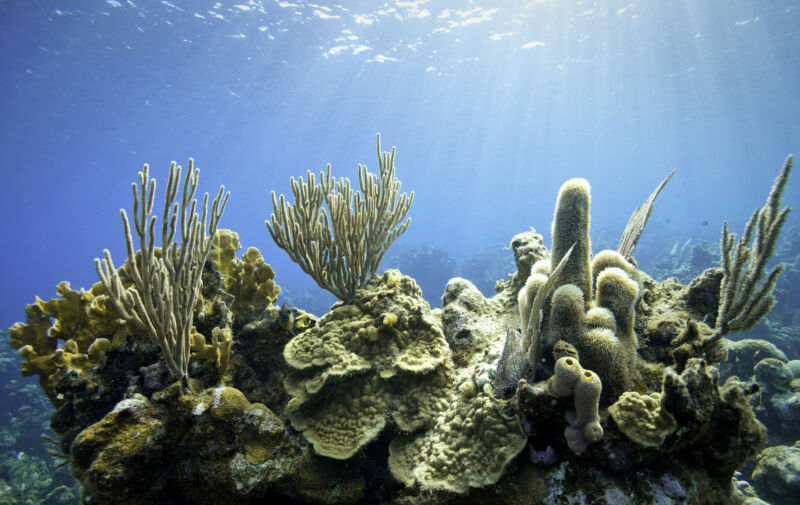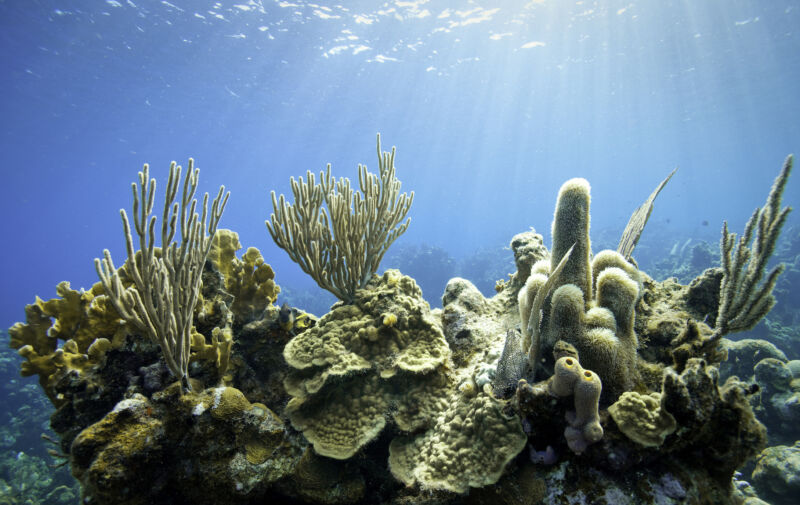
Enlarge (credit: Justin Lewis)
Medical authorities have spent years convincing people to use sunscreen to limit their exposure to UV light. But that effort has had a bit of a setback, as several locations have recently banned the use of sunblocks by beachgoers. Those bans took effect after local waters were found to have high levels of some of the chemicals in sunblock, which was associated with the lower health of nearby coral reefs.
Several studies have indicated that one specific sunblock component, a chemical called oxybenzone, is at the root of the problem. But the mechanism by which oxybenzone could harm corals wasn’t clear. And, without that understanding, it’s difficult to tell which sunblocks might pose a risk.
Now, researchers from Stanford University have identified the problem. The corals convert oxybenzone from a chemical that can harmlessly absorb UV light to one that damages biological molecules after being exposed to UV. And there’s evidence that coral bleaching makes matters worse, as the coral is less able to withstand exposure.





